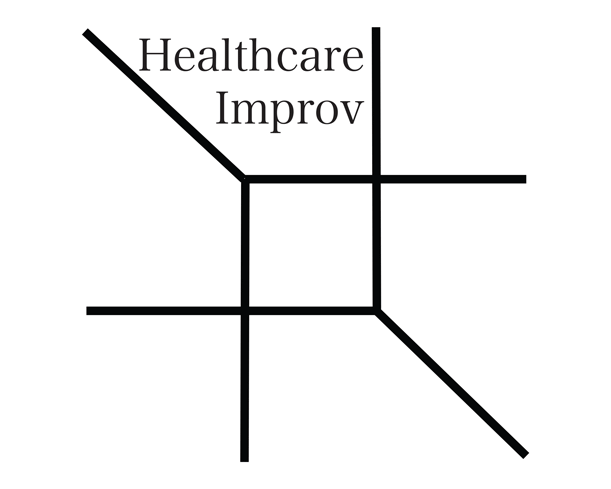The Connecting
This makes a week straight of entries. 7 days of writing down my thoughts of improv and healthcare. I regularly skip breakfast, but I have been telling myself that I won’t allow myself to eat until I have written at least 500 words that day. You may notice that some of these entries are coming in pretty late in the afternoon (more specifically today)!
Today I will briefly discuss why I think improv is well suited for our current moment in healthcare. I think if a person has had any significant improv experience, these ideas are self-evident. To the majority who have not, there are a wide variety of presuppositions regarding what improv is or is not that can muddy the waters on the purpose of using improv as a means to deal with some of the biggest issues facing healthcare. I think two main issues that need to be dealt with on a large scale are how patients experience medical care and healthcare workforce burnout. Both concepts have been large issues discussed extensively and mitigation strategies attempted for over a decade. Believe it or not, many of the metrics used to measure how we are doing in these departments are getting worse. It is fair to grant the pandemic made both experience of healthcare and provider burnout worse. Those metrics were not heading in the right direction before the pandemic, and even if the pandemic was the sole reason for the current state, the metrics are unlikely to improve magically on their own. I think some clarity on how improv can be used is worthwhile. Clarity is essential because of the need to balance humor and improv’s use in serious concepts. There are people that come to an improv experience for the purpose of improving their communications and having more productive interactions at work and with those around them. There are also people who come to an improv experience to find more joy, have fun, and take a break from the serious aspects of their lives. Improv has provided me with both of those outlets. I have discussed extensively how the skills I practiced while performing improv have helped me be a better physician and teacher of healthcare professionals. It cannot be understated how much these same skills have improved my communication with others outside of work, most notably my wife and children. My wife and I grew up with different communication styles and there had been times where we were not on the same page despite having the same goals and ideas. Improv skills have led me to seeking opportunities to understand more than to be understood, which has lessened those unnecessary friction points in my life, which is nice. Improv has made my default approach much more empathetic. So that when things are stressed in my life or are particularly busy, which is almost always, I am much more likely to be empathetic rather than just being empathetic when it’s easy. The act of practicing improv has also provided me an opportunity to have more fun at work (at appropriate times). A lesson that I learned when I took improv classes that stuck with me was that improv is not about being funny but it’s about having fun. The workshops and activities that we do are also not about being funny. Instead, they are about recognizing appropriate opportunities to have fun and find joy in your work. In the faculty development workshops that we do, we note that many times the laughter that they experience is more from a sense of connection and enjoyment rather than a sense of being funny. Those opportunities exist in the hospital left and right. Those opportunities also get lost in the shuffle of a busy day, so that our default response is to take care of the check boxes and move onto the next rather than stopping and reflecting about what was an opportunity to have fun or find joy in our work.
A phrase that was taught to me in residency is that “They won’t care what you know until they know that you care”. That became clear when I implemented improv principles in my patient care. At the same time, I also enjoyed work more and found increased meaning in my work. Laughter is not always the best medicine. Laughter is often a result of developing a connection. Connection might actually be the best medicine. Connection is the goal of improv and is my preferred way of dealing with the most pressing challenges in healthcare

